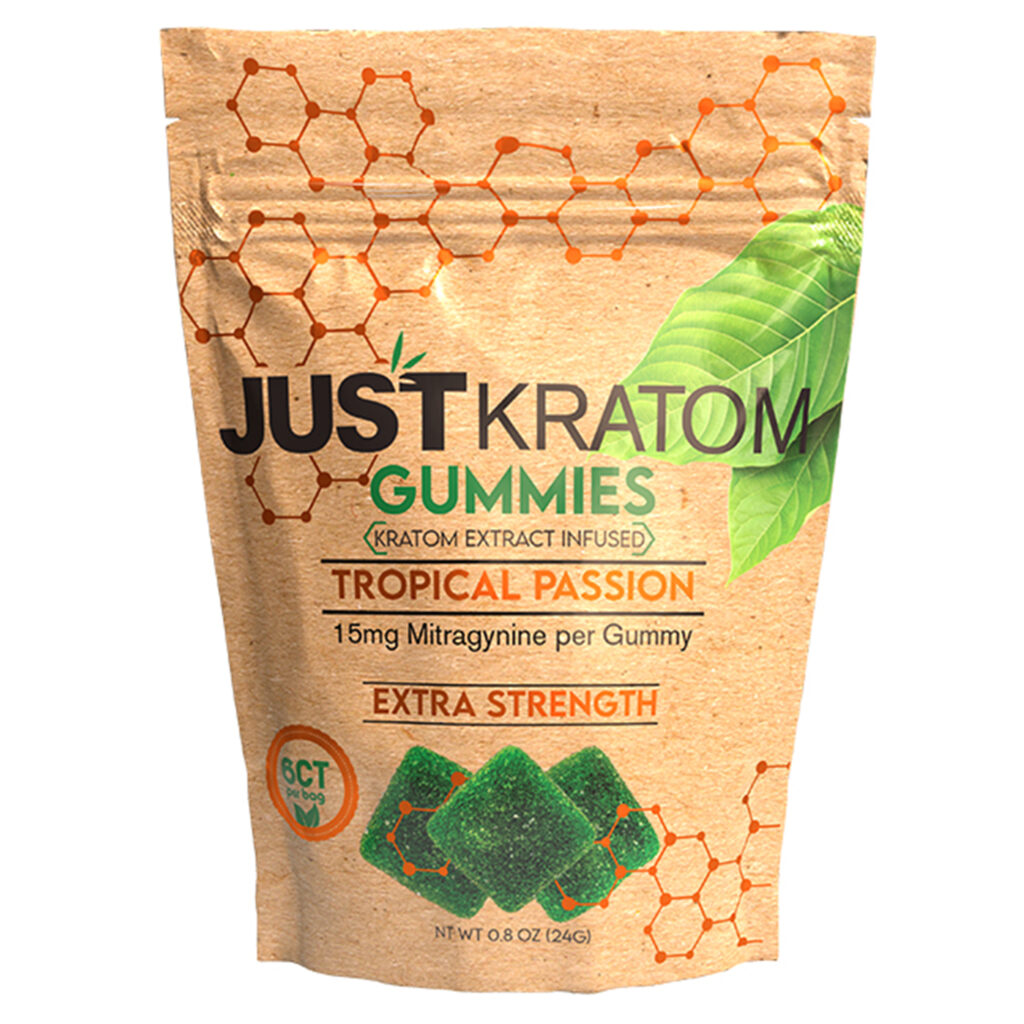Potential Benefits of Kratom Gummies
For individuals seeking alternative pain management options, kratom gummies have emerged as a potential solution. These gummies offer a convenient and discreet way to consume kratom, a plant known for its analgesic and mood-boosting properties.
Pain Management
Kratom gummies are gaining popularity as an alternative to prescription painkillers, offering a potentially less addictive and more natural approach to pain management.
The potential benefits of kratom for pain relief stem from its active compounds, mitragynine and 7-hydroxymitragynine, which interact with opioid receptors in the brain. While research on kratom is still ongoing, preliminary studies suggest that it may be effective in managing chronic pain conditions such as:
- Back pain
- Arthritis
- Fibromyalgia
Reduced Anxiety and Depression Symptoms

Beyond pain management, kratom gummies are also being explored for their potential to alleviate anxiety and depression symptoms.
Studies suggest that kratom may have antidepressant and anxiolytic effects, possibly due to its interaction with serotonin receptors in the brain.
- Reduced Anxiety:
- Improved Mood
- Decreased Symptoms of Depression
Improved Energy Levels
One potential benefit of kratom gummies is improved energy levels. Kratom contains compounds that can stimulate the central nervous system, leading to increased alertness and reduced fatigue. This makes kratom gummies a potential option for individuals experiencing low energy or needing a boost throughout the day.
Risks and Side Effects of Kratom Gummies

While kratom gummies offer potential benefits for pain relief, anxiety management, and energy enhancement, it’s crucial to be aware of the associated risks and side effects. These can include nausea, constipation, dizziness, headaches, and itching. In some cases, kratom use has been linked to more serious issues such as liver damage, seizures, and withdrawal symptoms.
Gastrointestinal Issues
One significant concern regarding kratom gummies is the potential for gastrointestinal issues. Kratom can cause nausea, vomiting, diarrhea, and constipation. These effects are often reported, especially when starting a new dosage or taking kratom in high doses.
The mechanism behind these digestive problems is believed to be related to kratom’s interaction with the gut’s musculature and its impact on the production of digestive enzymes.
Cardiovascular Effects
Kratom gummies can exert various effects on the cardiovascular system, some potentially harmful. One concern is that kratom may elevate blood pressure and heart rate due to its stimulant-like properties. This can be problematic for individuals with pre-existing cardiovascular conditions or hypertension.
Additionally, there are reports of kratom use being associated with irregular heartbeat patterns (arrhythmias). While the exact mechanisms behind these effects are not fully understood, it’s believed that kratom’s interaction with certain neurotransmitters and its potential to alter blood vessel function may contribute to these cardiovascular risks.
Individuals with heart conditions or concerns should exercise extreme caution when considering kratom gummies.
Addiction and Tolerance Potential
Kratom gummies, while potentially offering benefits for pain management, anxiety relief, and energy enhancement, carry inherent risks and side effects that warrant careful consideration.
One major concern is the potential for addiction and tolerance development. Kratom’s active compounds can produce a feeling of euphoria and well-being, leading to repeated use and dependence. Regular kratom consumption can lead to tolerance, requiring higher doses to achieve the desired effects. This cycle of increasing dosage can contribute to addiction and withdrawal symptoms when use is stopped.
Another significant risk associated with kratom gummies is their potential for adverse effects on various bodily systems. Kratom can cause gastrointestinal issues such as nausea, vomiting, diarrhea, and constipation. It may also affect the cardiovascular system by elevating blood pressure and heart rate, potentially leading to arrhythmias in some individuals.
Furthermore, kratom has been linked to liver damage in certain cases. Its long-term effects on the liver are not fully understood, but it’s essential to be aware of this potential risk.
Legal Status and Regulations of Kratom Gummies
The legal status and regulations surrounding kratom gummies vary significantly across different regions. In some countries, kratom is entirely banned, while in others, it is legal with certain restrictions or limitations on its sale and consumption. The United States, for instance, has not federally outlawed kratom, but individual states have the authority to regulate or ban its use.
Varied Legality Across States and Countries
The legality of kratom gummies varies widely from state to state within the United States and across different countries globally. Some states have completely banned kratom, while others allow its sale and consumption with restrictions.
At the federal level in the US, kratom is not currently illegal. However, there have been ongoing discussions and proposals for potential regulation or prohibition.
The legal landscape surrounding kratom is complex and constantly evolving. It is crucial for individuals to research the specific laws and regulations in their respective locations before purchasing or using kratom products, including gummies.
Potential for Regulatory Changes
The legal status of kratom gummies is a complex and evolving issue. In some countries, kratom is completely banned, while in others it is legal with varying restrictions.
Within the United States, kratom’s legal status varies by state. Some states have outright banned kratom, while others allow its sale and consumption with certain limitations. At the federal level, kratom is not currently federally illegal, but there are ongoing discussions and proposals for potential regulation or prohibition.
These legal uncertainties create challenges for consumers who may be unsure about the legality of kratom gummies in their area. It is essential for individuals to research the specific laws and regulations in their jurisdiction before purchasing or using kratom products.
The potential for regulatory changes regarding kratom gummies is a significant consideration. As scientific research on kratom’s effects continues and public awareness grows, there is a possibility that regulations could become stricter or more comprehensive in the future.
Comparison with Prescription Painkillers
Kratom gummies are increasingly being explored as a potential alternative to prescription painkillers.
Efficacy for Pain Relief
While both kratom gummies and prescription painkillers aim to alleviate pain, they differ significantly in their mechanisms of action, risks, and long-term effects. Prescription painkillers, such as opioids, bind directly to opioid receptors in the brain, effectively blocking pain signals. This can provide potent pain relief but carries a high risk of addiction, dependence, and overdose.
Kratom, on the other hand, interacts with opioid receptors indirectly through its active compounds, mitragynine and 7-hydroxymitragynine. These compounds have both analgesic and stimulant properties, potentially offering pain relief without the same level of addictive risk as opioids. However, kratom can still be habit-forming and has its own set of potential side effects and risks.
The efficacy of kratom for pain relief is still under investigation, with some studies suggesting it may be effective for managing chronic pain conditions like back pain, arthritis, and fibromyalgia. However, more research is needed to fully understand its long-term effectiveness and safety.
Risk Profile and Side Effects
Kratom gummies offer a potential alternative to prescription painkillers, but they come with their own set of risks and side effects. Prescription painkillers, like opioids, directly bind to opioid receptors in the brain, providing powerful pain relief but carrying a high risk of addiction and overdose. Kratom, however, interacts with these receptors indirectly through its active compounds, potentially offering a less addictive option.
While kratom shows promise for managing chronic pain conditions like back pain, arthritis, and fibromyalgia, more research is needed to confirm its long-term effectiveness and safety.
Both kratom gummies and prescription painkillers can have adverse effects. Kratom can cause nausea, constipation, dizziness, headaches, and itching. In some cases, it’s been linked to more serious issues like liver damage, seizures, and withdrawal symptoms. Prescription painkillers carry risks of addiction, dependence, overdose, respiratory depression, and other side effects.
The decision of whether to use kratom gummies or prescription painkillers should be made in consultation with a healthcare professional who can assess individual needs, medical history, and potential risks.
Cost and Accessibility
Kratom gummies offer an alternative to prescription painkillers but come with their own set of considerations. Prescription painkillers often carry a higher risk of addiction and dependence due to their direct interaction with opioid receptors.
Kratom, while also possessing pain-relieving properties, interacts with these receptors indirectly through compounds like mitragynine and 7-hydroxymitragynine. This mechanism may contribute to a lower risk of addiction compared to opioids.
Cost can be a significant factor in deciding between kratom gummies and prescription painkillers. Kratom is often more affordable than prescription medications, making it potentially accessible for individuals who struggle with the cost of conventional pain management.
However, it’s important to note that kratom legality varies widely across regions and countries.
Accessibility also differs. Prescription painkillers require a doctor’s prescription, whereas kratom gummies are often more readily available in some areas.
Considerations Before Using Kratom Gummies
For individuals seeking alternatives to traditional pain management methods, kratom gummies have emerged as a potential solution. These gummies offer a convenient and discreet way to consume kratom, a plant known for its analgesic and mood-boosting properties. However, before considering kratom gummies as an option, it is crucial to carefully weigh the potential benefits against the associated risks and side effects.
Individual Health Conditions and Medications
Before using kratom gummies, it’s essential to consider individual health conditions and medications. Kratom can interact with various medications, potentially leading to adverse effects or reduced effectiveness of these medications. Individuals with pre-existing medical conditions, such as liver disease, heart problems, or mental health disorders, should consult with a healthcare professional before using kratom gummies.
It is crucial to be aware of potential drug interactions. Kratom can interact with antidepressants, opioid pain relievers, blood thinners, and other medications.
Individuals taking any prescription or over-the-counter medications should consult with their healthcare provider before using kratom gummies to ensure there are no harmful interactions.
Kratom can also affect individuals with certain medical conditions. Those with liver disease, kidney problems, or cardiovascular issues should exercise extreme caution when considering kratom gummies, as it may exacerbate these conditions.
Dosage and Administration Guidelines
Before incorporating kratom gummies into your routine, it is essential to understand the recommended dosage guidelines and administration methods.
Starting with a low dose is crucial and gradually increasing it until desired effects are achieved is advised. Dosage needs vary depending on individual body weight, metabolism, tolerance, and the specific condition being treated. It is generally recommended to begin with a small amount, such as 1-2 grams of kratom powder or a single gummy containing an appropriate dosage.
The effects of kratom can be felt within 30 minutes to an hour after consumption, lasting for several hours.
Kratom gummies are typically taken orally and absorbed through the digestive system.
They offer a convenient and discreet method of administration compared to other forms of kratom, such as powder or tea.
It’s important to note that individual responses to kratom can vary significantly. What works for one person may not work for another.
Monitoring your body’s reaction and adjusting the dosage accordingly is crucial.
Always follow the instructions provided on the product label or consult with a healthcare professional for personalized guidance on dosage and administration.
Reliable Sourcing and Product Quality
When considering kratom gummies as a pain management alternative, reliable sourcing and product quality are paramount. Look for products from reputable manufacturers that provide detailed information about their sourcing practices, extraction methods, and third-party lab testing results. These tests ensure the gummies contain accurate dosages of active compounds and are free from contaminants or harmful substances.
It’s also crucial to choose kratom gummies that list all ingredients clearly on the label, as some products may contain additives or fillers that could potentially cause adverse reactions. Read reviews from other users and research the manufacturer’s reputation for quality control and customer satisfaction. Remember, the quality of kratom gummies can significantly impact their effectiveness and safety.
Buy Kratom Gummies for energy and focus
- Dermal Fillers Near Chobham, Surrey - September 24, 2025
- Collagen Boosting Therapy In Compton, Surrey - September 22, 2025
- How To Have A Cervical Orgasm – C-spot Orgasm - September 21, 2025
